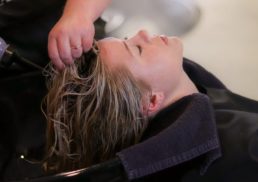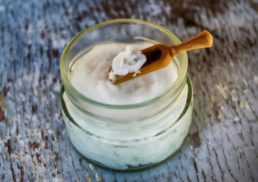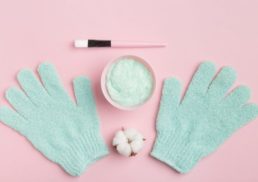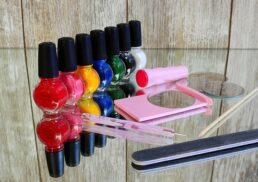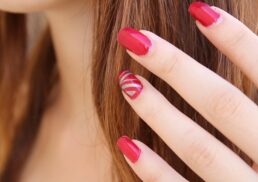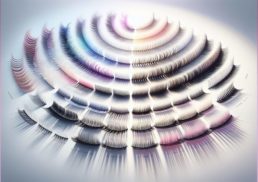Retinol serums have taken the skincare world by storm, promising to transform skin and address a multitude of concerns. But with so many products on the market, how do you find the perfect one for your unique skin type? Fear not! Our comprehensive 2023 guide to retinol serum is here to help you navigate through the different types, concentrations, and combinations of this wonder ingredient. So, get ready to embark on a journey to a more radiant, smoother, and youthful complexion.
Table of Contents
Short Summary
Retinol serum is a popular skincare product that addresses various skin concerns and promotes cell turnover.
Select an appropriate retinol concentration for your skin type, and combine with hydrating, soothing, and exfoliating ingredients to reduce irritation.
Use sunscreen daily when incorporating retinol into your routine. Be aware of potential side effects & consult a dermatologist if in doubt.
Understanding Retinol Serum
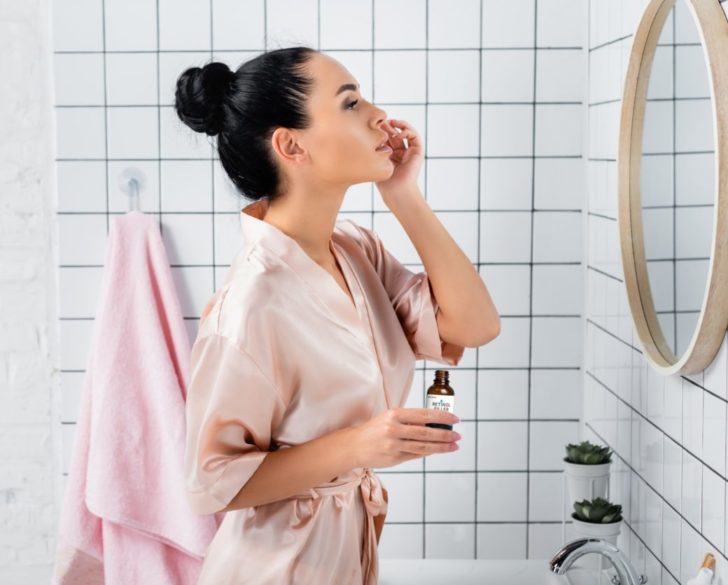
Retinol serum, a potent form of vitamin A, has become a skincare staple due to its ability to target various skin concerns, such as acne, dark spots, enlarged pores, and fine lines. Its power lies in promoting skin cell turnover, offering gentle exfoliation, and stimulating collagen production, effectively addressing age spots, texture, and wrinkles. Encapsulated retinol, a more stable and controlled-release form, ensures these benefits are delivered efficiently to the skin, while vitamin c can also contribute to collagen production and overall skin health.
But how do you choose the perfect retinol serum for your skin type? Let’s break down the types of retinol and their concentrations to help you make an informed decision.
Types of Retinol
While retinol might be the most well-known, there are other forms of retinoids, including retinoic acid, retinol, retinaldehyde, and retinyl esters. Retinoic acid, available only through prescription, is the most potent form, whereas retinol is milder and can be purchased over the counter. Retinol is the most widely-used vitamin A derivative found in skincare products, making it a popular choice for dry, sensitive, or mature skin.
Some retinol alternatives, such as retinaldehyde, retinoic acid, and plant-based options like bakuchiol, are more suitable for sensitive skin or those looking for a retinol alternative. For instance, Neutrogena Rapid Wrinkle Repair Anti-Wrinkle Retinol Serum With Hyaluronic Acid and The Ordinary Retinol 0.5% in Squalane are among the best retinol serums for sensitive skin.
Retinol Concentration
Choosing the right retinol concentration for your skin type and sensitivity level is crucial to minimize the risk of irritation and other side effects. Over-the-counter retinol serums typically contain a concentration of approximately 1 percent retinol. However, some retinol serums can have concentrations higher than 2 percent, depending on the type of retinoid used.
For those new to retinol, a lower concentration is recommended. Sensitive skin types should opt for a 0.25% concentration, regular skin for a 0.5% concentration, and oily skin for prescription retinoic acid. As you become more accustomed to using retinol, you can gradually increase the concentration for optimal results.
Top Retinol Serums for Different Skin Types
Now that we’ve covered the basics of retinol, it’s time to dive into our curated list of the best retinol serums for different skin types, including sensitive, dry, acne-prone, and mature skin. We’ve carefully selected products that cater to the unique needs of these skin types while still delivering the powerful benefits of retinol.
Each product has been carefully chosen to provide the best results for each skin type. For sensitive people.
Sensitive Skin
For those with sensitive skin, it’s essential to choose a retinol serum that is both mild and non-irritating. Look for products that contain calming ingredients such as ectoin, heartleaf and perilla extracts, ceramide, and hyaluronic acid. One such product is the Youth to the People Retinal + +. Niacinamide Youth Serum, a highly recommended “clean” retinol serum.
Another excellent option for sensitive skin is the Peach & Lily Retinal for All Renewing Serum. This product has been praised for causing minimal irritation thanks to its calming formula, which includes 0.3% ectoin, heartleaf and perilla extracts, ceramide, and hyaluronic acid.
Neutrogena Rapid Wrinkle Repair Anti-Wrinkle Retinol Serum With Hyaluronic Acid. Acid is another dermatologist-recommended gentle retinol serum suitable for sensitive skin.
Dry Skin
Dry skin types can benefit from hydrating and nourishing retinol serums like The Ordinary Retinol 0.5% in Squalane and La Roche-Posay Retinol B3. The Ordinary Retinol 0.5% in Squalane is a lightweight, non-greasy serum that hydrates and nourishes dry skin, while La Roche-Posay Retinol B3 contains vitamin B3 to moisturize and nourish dry skin.
To achieve the best results, start by applying these serums once a week and gradually increase the frequency to every other day. Apply a small amount to clean, dry skin and massage it gently, ensuring even coverage. These serums can help to hydrate and nourish dry skin, reduce the appearance of wrinkles and fine lines, and improve skin texture, addressing issues like uneven texture and tone.
Acne-Prone Skin
Acne-prone skin can benefit from retinol serums specifically formulated to target acne and improve skin texture. CeraVe Resurfacing Retinol Serum, a Best of Beauty Award winner, is an ideal choice for acne-prone skin as it combines the powerful effects of retinol, niacinamide, and ceramides to effectively improve post-acne marks, even skin tone and texture, and repair and hydrate the skin.
Another great option is L’Oréal Paris Revitalift Derm Intensives Night Serum, which contains a 0.3% concentration of pure retinol. This serum is highly recommended for wrinkles and is also suitable for acne-prone skin. With regular use, you can expect visible improvements in your skin within a few weeks.
Mature Skin
Mature skin types can benefit from retinol serums specifically designed to address fine lines, wrinkles, and other signs of aging. L’Oréal Paris Revitalift Derm Intensives Night Serum, containing a 0.3% concentration of pure retinol, is highly recommended for wrinkles.
For optimal results, apply a small amount of L’Oréal Paris Revitalift Derm Intensives Night Serum to your entire face every other night, ensuring even coverage. With regular use, you can expect visible improvements in your skin within a few weeks, including a reduction in the appearance of fine lines and wrinkles, and a more youthful complexion.
Combining Retinol Serum with Other Skincare Ingredients
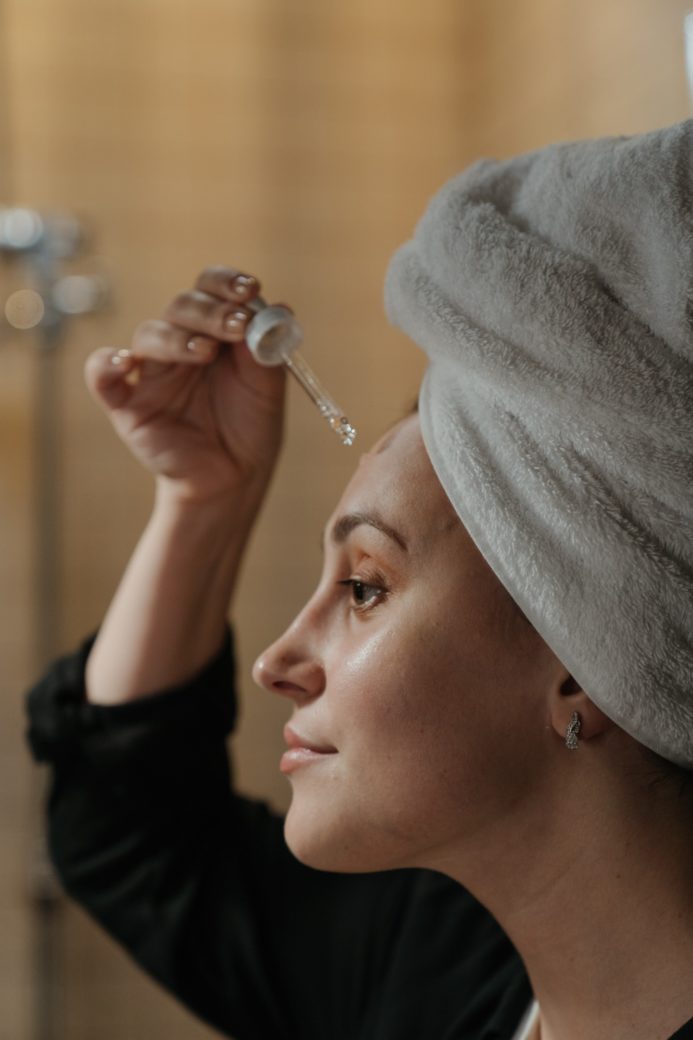
To maximize the benefits of your retinol serum, it’s essential to know how to safely combine it with other skincare ingredients. In this section, we will discuss how to incorporate hydrating and soothing ingredients, as well as exfoliating acids, into your retinol serum regimen for optimal results.
Hydrating ingredients, such as hyaluronic acid, can help to reduce the potential for cancer.
Hydrating and Soothing Ingredients
When using retinol serum, it’s crucial to ensure your skin stays hydrated and soothed. Ingredients like hyaluronic acid, glycerin, squalane, niacinamide (vitamin B3), ceramides, and plant oils can be incorporated into your retinol serum to provide hydration and soothe irritation.
Some of the most effective ingredients for providing hydration and soothing while using retinol serum include hyaluronic acid, glycerin, and niacinamide. Additionally, ingredients such as chamomile, aloe, witch hazel, and green tea can be used to reduce irritation caused by retinol serum.
Exfoliating Acids
Exfoliating acids, such as lactic acid and alpha hydroxy acids (AHAs) like glycolic acid, can facilitate exfoliation and enhance cell regeneration when combined with retinol serum. This combination can promote smoother skin texture and even out skin tone. However, it’s essential to take a gradual approach when combining exfoliating acids with retinol serum to avoid irritation. Start by using the products once or twice a week and gradually increase the frequency as your skin adapts.
Additionally, it is essential to apply sunscreen when using exfoliating acids, as they can make the skin more vulnerable to the sun. We recommend The Ordinary Lactic Acid 5% + HA and BIOSSANCE Squalane + 10% Lactic Acid Resurfacing Night Serum as suitable products that contain exfoliating acids.
How to Apply Retinol Serum
Now that you’ve chosen the perfect retinol serum and learned how to combine it with other skincare ingredients, it’s time to learn the best way to apply retinol serum.
In this section, we’ll provide step-by-step instructions on how to properly apply retinol serum for maximum effectiveness and minimal irritation.
Frequency and Dosage
How often should you use retinol serum? It’s generally advised to use retinol serum two to three times a week. However, the recommended dosage varies depending on the concentration of retinol in the serum. For beginners, a concentration of 0.25 percent to one percent is suggested to observe results. It’s always a good idea to consult with a dermatologist for personalized advice.
The suggested frequency for retinol serum may differ, but most people can use it daily or nearly daily. Start by using the serum once or twice weekly, and steadily increase usage as tolerated. Remember, the right frequency and dosage can help ensure uniform application and minimize the probability of irritation.
Application Techniques
When applying retinol serum, it’s essential to use the right technique to ensure even coverage and reduce the risk of irritation. Apply a small amount of retinol serum to your entire face every other night, ensuring even coverage. Be cautious when applying retinol serum near the eyes, nose, and neck to avoid irritation.
Finish your retinol serum application with a non-comedogenic facial moisturizer to keep your skin hydrated and healthy. Remember, proper application techniques can make all the difference in your retinol serum experience, so be sure to follow these guidelines for optimal results.
Learn more , visit The right application method for retinol and the best products to buy
Retinol Serum and Sun Protection
Sun protection is crucial when incorporating retinol serum into your skincare routine, as retinoids may make the skin more sun-sensitive. To protect your skin from the effects of sun exposure, it’s essential to apply a broad-spectrum sunscreen daily with an SPF of 30 or higher. Choose a sunscreen that is labeled as “non-comedogenic” or “non-acnegenic” to prevent clogged pores and ensure compatibility with your retinol serum.
Proper sun protection is a vital part of any skincare routine, especially when using retinol serum, as it helps maintain a healthy skin barrier. So don’t forget to apply sunscreen every day.
Addressing Common Retinol Serum Concerns
It’s essential to address common retinol serum concerns to ensure that users are aware of the potential side effects and risks associated with using retinol serum. Some of the most commonly reported issues with retinol serum include redness, peeling, irritation, dryness, and heightened sensitivity to the sun.
While retinol serum is safe to use on all skin types, it’s not recommended for use during pregnancy. If you’re concerned about potential side effects or risks associated with retinol serum, consider consulting with a board-certified dermatologist for personalized advice and recommendations.
Summary
Our comprehensive guide to retinol serum has covered everything from understanding retinol and its various forms and concentrations, to choosing the best retinol serums for different skin types, combining retinol serum with other skincare ingredients, and properly applying retinol serum. With this knowledge, you can confidently incorporate retinol serum into your skincare routine and experience the transformative benefits of this powerful ingredient. Here’s to a brighter, smoother, and more youthful complexion!
Frequently Asked Questions
What does retinol serum do?
Retinol serum increases skin cell production, exfoliates the skin and boosts collagen production, improving the appearance of fine lines and wrinkles for a youthful, plump complexion.
It helps to reduce the appearance of age spots, sun damage, and other skin discolorations, leaving skin looking brighter and more even-toned.
It also helps to improve skin texture, making it smoother and softer.
Ret.
Is it good to use retinol serum everyday?
Yes, it is generally good to use retinol serum everyday, but you should introduce it gradually and give your skin time to acclimate before working up to every day usage.
Use caution when increasing the frequency, and be mindful of any signs of irritation or sensitivity that could indicate your skin needs a break.
Is retinol serum good for you?
Retinol serum is a beneficial skin care product that can reduce the appearance of wrinkles, unclog pores, and stimulate collagen production, leaving your skin looking fresh and healthy.
It is a powerful anti-aging ingredient that can help reduce the signs of aging, such as wrinkles, fine lines, and age spots. It can also help to improve skin tone and texture, and can even help to reduce the appearance of acne scars.
What is a good retinol for your face?
For optimal results, SkinCeuticals Retinol 0.3 from Dermstore, RoC Retinol Correxion Deep Wrinkle Night Cream from Target, Differin 0.1% Adapalene Treatment Gel from Ulta, and other comparison-tested retinol creams offer the best protection for your face.
Can I use retinol serum with other skincare ingredients?
Yes, you can safely use retinol serum with hydrating ingredients like hyaluronic acid and soothing ingredients like niacinamide, as well as exfoliating acids like lactic acid and glycolic acid.

